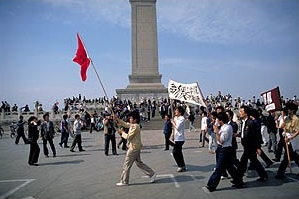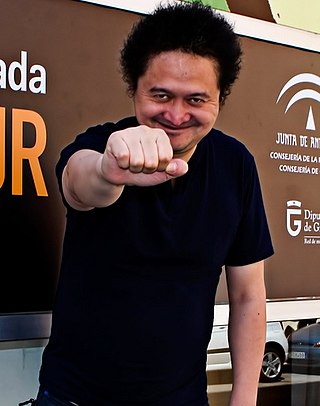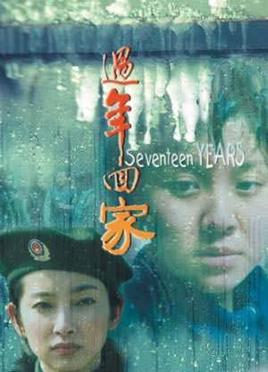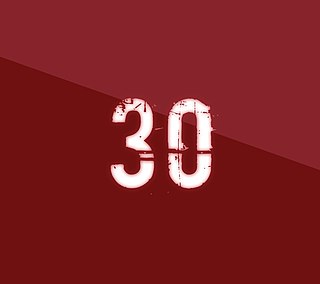Related Research Articles

The Tiananmen Square protests, known in Chinese as the June Fourth Incident, were student-led demonstrations held in Tiananmen Square, Beijing, during 1989. In what is known as the Tiananmen Square Massacre, or in Chinese the June Fourth Clearing or June Fourth Massacre, troops armed with assault rifles and accompanied by tanks fired at the demonstrators and those trying to block the military's advance into Tiananmen Square. The protests started on 15 April and were forcibly suppressed on 4 June when the government declared martial law and sent the People's Liberation Army to occupy parts of central Beijing. Estimates of the death toll vary from several hundred to several thousand, with thousands more wounded. The popular national movement inspired by the Beijing protests is sometimes called the '89 Democracy Movement or the Tiananmen Square Incident.
Jiang Yanyong is a Chinese physician who publicized a coverup of the severe acute respiratory syndrome (SARS) epidemic in Mainland China. Born into the Zhejiang Xingye Bank family, Jiang was the chief physician of the 301 Hospital in Beijing and a senior member of the Chinese Communist Party. Jiang has been under periodic house arrest due to his role in exposing the coverup of SARS outbreak and calls for the Government of China to bear responsibility. According to a report in The New York Times, Jiang is portrayed as a bad role model in Chinese educational material, for "harming the interests of the nation".

Tank Man is the nickname of an unidentified Chinese man who stood in front of a column of Type 59 tanks leaving Tiananmen Square in Beijing on June 5, 1989, the day after the Chinese government's violent crackdown on the Tiananmen protests. As the lead tank maneuvered to pass by the man, he repeatedly shifted his position in order to obstruct the tank's attempted path around him. The incident was filmed and shared to a worldwide audience. Internationally, it is considered one of the most iconic images of all time. Inside China, the image and the accompanying events are subject to censorship.

Jia Zhangke is a Chinese-language film and television director, screenwriter, producer, actor and writer. He is the dean of the Shanxi Film Academy of Shanxi Media College and the dean of the Vancouver Film Academy of Shanghai University. He graduated from the Literature Department of Beijing Film Academy. He is generally regarded as a leading figure of the "Sixth Generation" movement of Chinese cinema, a group that also includes such figures as Wang Xiaoshuai, Lou Ye, Wang Quan'an and Zhang Yuan.

Tian Zhuangzhuang is a Chinese film director, producer and actor.

Zhang Yuan is a Chinese film director who has been described by film scholars as a pioneering member of China's Sixth Generation of filmmakers. He and his films have won ten awards out of seventeen nominations received at international film festivals.

The Gate of Heavenly Peace is a 1995 documentary film, produced by Richard Gordon and Carma Hinton, about the Tiananmen Square protests of 1989.

Seventeen Years is a 1999 Chinese film directed by Zhang Yuan and starring Li Bingbing in her feature film debut. Seventeen Years was screened at several international film festivals where it garnered numerous accolades, including the Director's Award at the 56th Venice Film Festival.

I Love You is a 2002 Chinese drama film directed by Zhang Yuan and starring Xu Jinglei and Tong Dawei. The film was a co-production between the Xi'an Film Studio and Jewel Film Investment Company.

The Days is filmmaker Wang Xiaoshuai's 1993 directorial debut. Filmed entirely in black-and-white, The Days follows the life of Dong, and Chun, married artists who have recently graduated from the Beijing Art Institute. Living meagerly in the hope of making enough money off their works, it soon becomes obvious to everyone but themselves that the marriage has begun to die.

Mama is a 1990 Chinese film directed by Zhang Yuan. Zhang Yuan's directorial debut, Mama is now considered a seminal film in the history of Chinese independent cinema, and by extension, as a pioneering film of the Sixth Generation of which Zhang is a member. Shot on a very low budget within Zhang Yuan's apartment, Mama follows the story of a mother and her mentally challenged adult son.

Crazy English is a 1999 Chinese documentary directed by Zhang Yuan. The film premiered along with Zhang's Seventeen Years at the 1999 Locarno International Film Festival. It established Zhang's position as a "legitimate" director after years of working independently from, and often at odds with, the Chinese authorities.

The 60th anniversary of the founding of the People's Republic of China took place on 1 October 2009. A military parade involving 10,000 troops and the display of many high-tech weapons was held in Tiananmen Square in Beijing and various celebrations were conducted all over the country. China's paramount leader Hu Jintao inspected the troops along Chang'an Avenue in Beijing. This parade was immediately followed by a civilian parade involving 100,000 participants.
During the 1989 Tiananmen Square protests and massacre in Beijing, the Chinese People's Liberation Army (PLA) played a decisive role in enforcing martial law, suppressing the demonstrations by force and upholding the authority of the Chinese Communist Party (CCP). The subject of the Tiananmen protests in general and the military's role in the crackdown remains forbidden from public discussion in China. The killings in Beijing continue to taint the legacies of the party elders, led by Deng Xiaoping, and weigh on the generation of leaders whose careers advanced as their more moderate colleagues were purged or sidelined at the time. Within China, the role of the military in 1989 remains a subject of private discussion within the ranks of the party leadership and PLA.
The April 27 demonstrations were massive student protest marches throughout major cities in China during the 1989 Tiananmen Square protests and massacre. The students were protesting in response to the April 26 Editorial published by the People's Daily the previous day. The editorial asserted that the student movement was anti-party and contributed to a sense of chaos and destabilization. The content of the editorial incited the largest student protest of the movement thus far in Beijing: 50,000–200,000 students marched through the streets of Beijing before finally breaking through police lines into Tiananmen Square.
The 1989 Tiananmen Square protests and massacre saw a massive redeployment of People's Liberation Army (PLA) troops into and around Beijing. After the declaration of martial law, the PLA mobilized at least 22 divisions from 13 Armies, which converged on Beijing. This force far exceeded the local garrison, with troops being sent in from across China. Altogether, roughly 300,000 troops were involved in the campaign to quell the protests. By their end, the PLA had proven that it was largely willing to enforce party decrees with lethal force. Multiple significant breaches of military discipline occurred after the imposition of martial law. Some cases involved officers or entire units being unwilling to obey directives from farther up the chain of command, others related to the misuse of military equipment, and some were responsible for casualties incurred during the night of June 3. It is unclear when, how, or even if some PLA units received orders to open fire on the protesters, and so knowing whether or not an incident amounts to insubordination is difficult. If the PLA as a whole received orders to use lethal force, CMC chairman Deng Xiaoping must have given his assent to it. Yang Shangkun's orders to the Central Military Commission on the 20th of May 1989 explicitly deny troops the authority to use lethal force during martial law, even when their lives are threatened by the protesters. According to Li Xinming's report to the politburo on June 19 however, 10 PLA soldiers did end up dying, along with 13 from the People's Armed Police. For these 23 dead, they inflicted 218 deaths on the protesters, although some sources place this number in the thousands.

The Beijing Garrison Honor Guard Battalion, officially the PLA Honour Guard, is a ceremonial honour guard and specialised unit of the People's Liberation Army (PLA). It is composed of representatives of the People's Liberation Army Ground Force, Navy, and Air Force. Male soldiers in the battalion must be at least 180 cm tall, while females must be at least 173 cm tall. This honor guard battalion, while reporting directly to the Central Military Commission, falls under the operational control of the Central Theater Command. During parades, the battalion is led by a color guard detail bearing the PLA flag, a tradition which began in 1981.
The protests that occurred throughout the People's Republic of China in the early to middle months of 1989 mainly started out as memorials for former General Secretary Hu Yaobang. The political fall of Hu came immediately following the 1986 Chinese Student Demonstrations when he was removed by paramount leader Deng Xiaoping for being too liberal in his policies. Upon Hu's death on April 15, 1989, large gatherings of people began forming across the country. Most media attention was put onto the Beijing citizens who participated in the Tiananmen Square Protests, however, every other region in China had cities with similar demonstrations. The origins of these movements gradually became forgotten in some places and some regions began to demonstrate based on their own problems with their Provincial and Central Governments.

The 30th anniversary of Tiananmen Square protests of 1989 was principally events that occurred in China and elsewhere on 4 June 2019 - to commemorate the Chinese Communist Party's crackdown on the Tiananmen Square protests of 1989 in which hundreds of people were killed.

The National Day Parade, officially the National Day of the People's Republic of China Parade, is a civil-military parade event held at Tiananmen Square in Beijing, the capital of the People's Republic of China, on the National Day of the People's Republic of China on 1 October. It is organized by the People's Liberation Army, the People's Armed Police and the Militia, as well as civilian groups of the Chinese Communist Party (CCP). It has been held every decade since 1959, annually from 1950 to 1959, and has been broadcast live on China Central Television since 1984.
References
- ↑ Berry, Michael (2002). "Wording up a Sweat in a Celluloid Sauna" in Speaking in Images: Interviews with Contemporary Chinese Filmmakers . Columbia University Press, p. 147-48. ISBN 0-231-13331-6. Google Book Search. Retrieved 2008-09-05.
- ↑ Chen, Pauline (Winter 1996). "Screening History: New Documentaries on the Tiananmen Events in China". Cineaste . Vol. 22, no. 1. Retrieved 2008-09-05. (republished by the University of California Berkeley library)
- 1 2 3 4 Berry, p. 148
- 1 2 Tasker, Yvonne (2002). "Zhang Yuan" in Fifty Contemporary Filmmakers . Routledge Publishing, p.421. ISBN 0-415-18974-8. Google Book Search. Retrieved 2008-09-05.
- ↑ "Zhang Yuan's bio". Cinovision Productions. Archived from the original on 2008-06-16. Retrieved 2008-09-05.